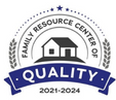While there is no denying the benefits of physical health of being outdoors, May is also Mental Health Awareness Month. This means every person or family we see enjoying the returning sunshine has been, in some way, affected by the challenges of mental health conditions. Supporting Children's Mental Health As a Youth and Family Educator at The River Center, I focus on working with adolescents in our schools to run groups supporting children’s mental health. This includes LifeSkills courses, adulting 101, conflict resolution, anger management, financial literacy, and personal empowerment. One of the privileges of this position is the ability to attend seminars and trainings to stay current with best practices. To start May and Mental Health Awareness Month, my coworker and I, Community Resource Specialist and Kinship Navigator, Mandy Carter, attended the public “Changing the Culture Around Mental Health: It’s Way Past Time” seminar presented by the Greater Monadnock Collaborative, in partnership with the Friends of the Cheshire County Recovery Court and Monadnock Family Services. Devoting His Life to Spreading Awareness Around Mental Health The major highlight for us was to hear former Chief Justice of the New Hampshire Supreme Court, John Broderick, speak. He has devoted his life to spreading awareness around mental health conditions and his message was clear: end the stigma and as a community, as a nation, handle it with the same care and resources that we apply to physical health. He invited anyone in the audience to stand up if they have struggled, or had a family member struggle, with a mental health condition. Without hesitation, the entire room stood up. He remarked this response happens in every auditorium, in every location, across the country, demonstrating how important and pervasive these issues truly are. For the former Chief Justice, he shares with his audiences, from elementary schools to nursing homes, his own personal family struggle with mental health conditions while maintaining a wit and brevity that encourages real connection. What Can You Actually Do To Support Mental Health? While these seminars are helpful for us to get to the heart of issues facing our community, and I invite you to attend when you can, it is not the end all. We have the information, we have the data to support it, but now what? What can you, as an individual, actually do? The first thing is to look within yourself and your own family or circle and assess whether you have supported, or are being supported through mental health conditions. Does your family need connection,interventions, professional treatment? Support Local Nonprofits and Community Partners This can be admittedly hard to navigate, so another way to take action is to support your local nonprofits and community partners working in mental health. The River Center is your local connector to these services, and we also offer enrichment groups and activities to help support wellbeing in our community. Our free tax program and money coaching, our Safe Sitter courses, our parent and child groups all help promote mental health through practical applications. You might even consider becoming a monthly donor to The River Center, we know that small consistent actions can turn into large movements. Reduce the Stigma On a more simple note, keep talking about it. Talk to family, friends, and neighbors about mental health conditions. Reduce the stigma. Vote for policies that acknowledge the issues you care about. Waiting lists for treatment are long. Demand better pay and more respect for mental health professionals working in the field, thereby encouraging young folks to enter into those careers. Most of all, check in with yourself, your children, and grandchildren. We all need support, and I invite you to be the one who starts the conversation. AuthorStephanie Latini's role at The River Center was Youth and Family Educator.
0 Comments
Leave a Reply. |
|
Subscribe to our newsletter |
Copyright © 2024 by The River Center


 RSS Feed
RSS Feed



